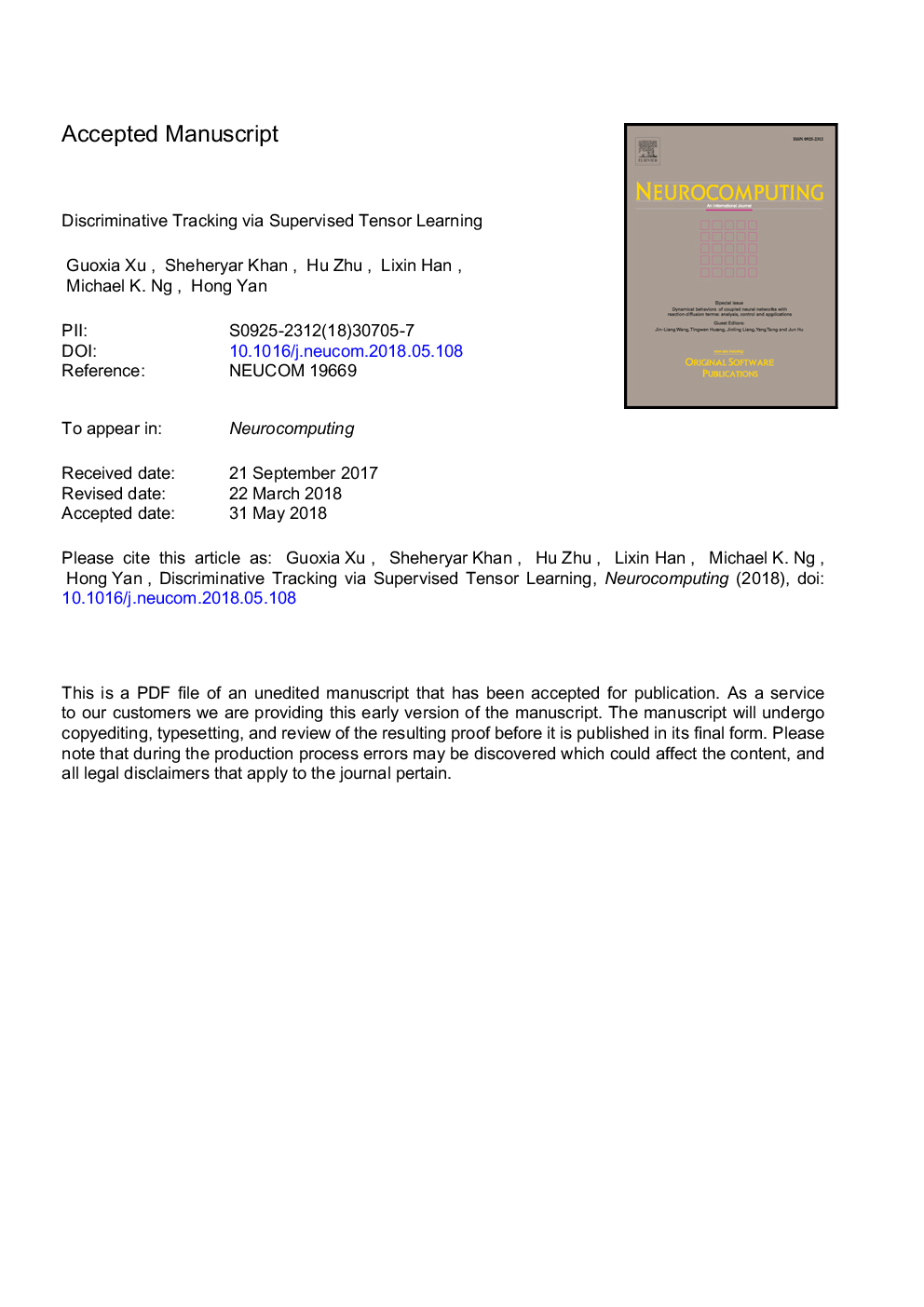| Article ID | Journal | Published Year | Pages | File Type |
|---|---|---|---|---|
| 10151141 | Neurocomputing | 2018 | 39 Pages |
Abstract
Discriminative tracking algorithms have witnessed continued progress for distinguishing the target from background in unconstrained environments. The learning and detection task in existing visual tracking methods often convert a multidimensional data array into a vector-based observation. By altering the 2-D spatial structure of the image, transformation variants and global noises influence the discriminative ability of target representation, often result in degradation of performance. Different from vector representations, this paper presents a tensor-based large margin discriminative framework for visual tracking that utilizes the supervised tensor learning. In our method, an online structured support tensor classifier is designed which produces the multi-linear decision function, incorporating the nonlinearity of tensor-based feature over the target. In order to provide better spatial cues of target representation against noises and facilitate online tracking, we further introduce truncated tucker decomposition in structured multi-linear learning. The proposed algorithm poses an effective parameter tensor reconstruction in the classifier updating procedure and has a robust discriminative ability against several video background variants. Furthermore, a tensor block coordinate descent optimization is presented to achieve a closed form solution specific to the proposed truncated structured Tucker machine (TSTM). Experiment results on a recent comprehensive tracking benchmark demonstrate a promising performance of the proposed method subjectively and objectively compared with several state-of-the-art algorithms.
Keywords
Related Topics
Physical Sciences and Engineering
Computer Science
Artificial Intelligence
Authors
Xu Guoxia, Sheheryar Khan, Zhu Hu, Han Lixin, Michael K. Ng, Yan Hong,
